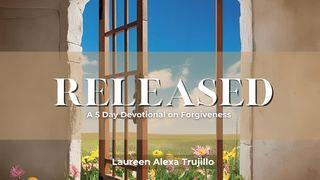James Explained | A How-to-Guide to Christian MaturitySample

Day 2 | James 2
This devotional works best as an audio experience. Hit the play button now, and read along if you like.
Welcome back to Through the Word. James Chapter 2 today. James is an instruction manual on how to live a mature Christian life. Today we are going to see a very powerful message on how to make sure people know you are a mature Christian, and it isn't simply by posting Bible verses on your Instagram feed. James Chapter 2 has two different lessons with one unifying theme: What does real faith look like? Lots of people call themselves Christians, but how do you know if it's real? How do you know if you're real or just a fake?
We start by finding out: How do we show love for others? And it's by accepting them for who they are. Look at verse 1:
“My brothers and sisters, believers in our glorious Lord Jesus Christ must not show favoritism” (James 2:1).
Now James discusses a case where two men walk into church. One gets out of his BMW wearing designer clothes. The other is getting off the bus wearing dirty clothes, and smelling a little funny. Well, James doesn't mention the BMW or the bus—but let's just go with it.
So these two guys enter the church at the same time. How should we treat them? Now God told Samuel, Man looks at the outward appearance, but God looks at the heart (1 Samuel 16:7). Most of us would feel pretty comfortable if Mr. BMW sat down next to us at church. But what about Mr. Stinky? I think most of us would make an excuse to move a few seats down, but this is a serious problem. Look down at verse 3:
“If you show special attention to the man wearing fine clothes and say, ‘Here’s a good seat for you,’ but say to the poor man, ‘You stand there’ or ‘Sit on the floor by my feet,’ have you not discriminated among yourselves and become judges with evil thoughts?” (James 2:3-4).
If we treat people differently based on their appearance or their credit limit, we are discriminating against them and we are judging them. And it is our values that are in need of a major adjustment. Remember that Jesus said that the poor would inherit the kingdom. True faith shows love, not discrimination. Discrimination and favoritism are sins and they must be dealt with. Take a look at verse 8:
“If you really keep the royal law found in Scripture, ‘Love your neighbor as yourself,’ you are doing right. But if you show favoritism, you sin and are convicted by the law as lawbreakers” (James 2:8-9).
Now in order to make sure that his readers don't think, "Well, I'm not hating the person. It's not like I'm committing murder," James explains that breaking even a small law still makes you a lawbreaker. Verse 10:
“For whoever keeps the whole law and yet stumbles at just one point is guilty of breaking all of it” (James 2:10).
If you go and steal a candy bar at a store, you're a thief. If you're caught, petty theft will be on your rap sheet. You might say, but it's just a candy bar! It doesn't matter, you're still a criminal! In the same way, showing discrimination may not be murder, but it is still sin. So, how should we show our faith? Verse 12 gives us the answer:
“Speak and act as those who are going to be judged by the law that gives freedom…” (James 2:12).
Now, it’s not just the Ten Commandments that I’m talking about here, but a much more severe law: the law of love. We will be judged by God for the way that we show love to others. Not only is faith seen in the love that we have for believers, but it is seen in our works as well.
Now before we dive into the next section, let's pause for just a moment to remind ourselves of how we are saved. Ephesians 2 verses 8 and 9 say:
“For it is by grace you have been saved, through faith—and this is not from yourselves, it is the gift of God—not by works, so that no one can boast” (Ephesians 2:8-9).
Paul makes it clear that we are not saved by our works, nor the good things that we do for Christ. Helping little old ladies cross the street will not earn us our salvation, nor will taking a mission trip, tithing more, or even fasting.
We are saved by the grace of God alone. Now, what is grace? It is the undeserved love of God poured out abundantly on us. We have all sinned. We lie, cheat, steal, hate, covet. We deserve to experience God's judgment because a holy judge will punish all ungodliness. But God provides a way for us to find his favor and love—His grace. There is nothing we can do to earn God's grace, just as no number of good deeds will undo a crime once it's committed. The crime has been committed, and now judgment must come. But God has made a way for us to experience His grace again. For it is by grace you have been saved, through faith.
When we place our faith in God—when we trust him and place our confidence in him and turn from our sin—he pours out his grace into our lives, and we are saved. Now back to James. This section of scripture has been the source of many debates throughout the centuries, but wholly without cause. Many people have read this passage and thought that James was teaching a different path of salvation than what we see in Paul's writings. A path of salvation based on works, not faith. On deeds, not grace. But let's read the passage and see what James is really teaching. Verse 14:
“What good is it, my brothers and sisters, if someone claims to have faith but has no deeds? Can such faith save them?” (James 2:14).
And down in verse 17:
“In the same way, faith by itself, if it is not accompanied by action, is dead” (James 2:17).
Is James really teaching that a person must have good deeds as well as faith in order to be saved? Well, yes and no. James uses as his examples of faith and works the patriarch Abraham and the prostitute Rahab. Now both did amazing things for God.
Abraham trusted the Lord when he offered his son as a sacrifice back in Genesis 22. And Rahab hid the spies as they were checking out the city of Jericho. But both of them did these great things as a result of their faith. Abraham believed God, and it was credited to him as righteousness. James quotes from Genesis 15, which actually speaks of a moment of faith that took place years before the sacrifice of Isaac. And Rahab hid the spies because she heard about the God of Israel, and believed in him.
What James is saying is that true faith will reveal itself in good works. Belief alone is not enough to save a person. As James says in verse 19:
“You believe that there is one God. Good! Even the demons believe that—and shudder” (James 2:19).
True faith is more than just belief, although that is part of it. True faith is a constant trust in God and is seen in obedient action and love towards God and others. That means that true faith will reveal itself through good works.
There is an old cliché that asks if you were arrested and put on trial for your faith in God, would there be enough evidence to convict you? Is your life changed because of the word of God? James says we are to feed the hungry, to clothe the naked. Are you doing that? Look again at that passage in Ephesians 2. After saying that we're saved by grace through faith, Paul says in verse 10:
“For we are God’s handiwork, created in Christ Jesus to do good works, which God prepared in advance for us to do” (Ephesians 2:10).
God saved us through grace—in order that we might do good works. Martin Luther once said, “We are saved by faith alone but not by a faith that is alone.” True faith reveals itself in good works. We are not saved by these good works, but if we are not doing them, we really must ask ourselves if we are saved at all.
James chapter 2: A how-to guide for revealing your faith.
Read James 2
All verses are quoted from the NIV unless otherwise noted.
Scripture
About this Plan

James is an intensely practical book, with straightforward advice on trials, temptation, anger, wisdom, and more. From taming the tongue to listening with humility, it’s a how-to guide to Christian maturity, and Through the Word guides you through every step with engaging audio guides for each chapter. Join Jonathan Ferguson as we grow up in faith and grow deeper in understanding in one of the Bible’s most popular books.
More









